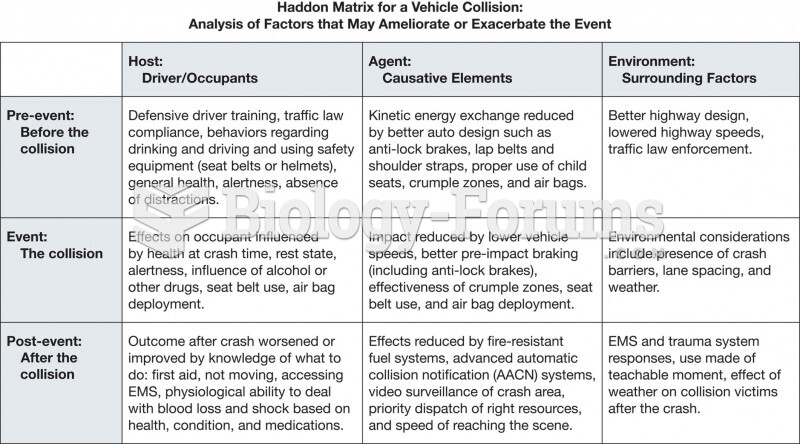This topic contains a solution. Click here to go to the answer
|
|
|
Did you know?
Autoimmune diseases occur when the immune system destroys its own healthy tissues. When this occurs, white blood cells cannot distinguish between pathogens and normal cells.
Did you know?
If you could remove all of your skin, it would weigh up to 5 pounds.
Did you know?
The average office desk has 400 times more bacteria on it than a toilet.
Did you know?
There are immediate benefits of chiropractic adjustments that are visible via magnetic resonance imaging (MRI). It shows that spinal manipulation therapy is effective in decreasing pain and increasing the gaps between the vertebrae, reducing pressure that leads to pain.
Did you know?
The horizontal fraction bar was introduced by the Arabs.
 In the summer of 1793, a yellow fever epidemic struck Philadelphia, killing nearly 4,000. Tens of th
In the summer of 1793, a yellow fever epidemic struck Philadelphia, killing nearly 4,000. Tens of th
 This training vehicle fell from the hoist because the pads were not set correctly. No one was hurt, ...
This training vehicle fell from the hoist because the pads were not set correctly. No one was hurt, ...





